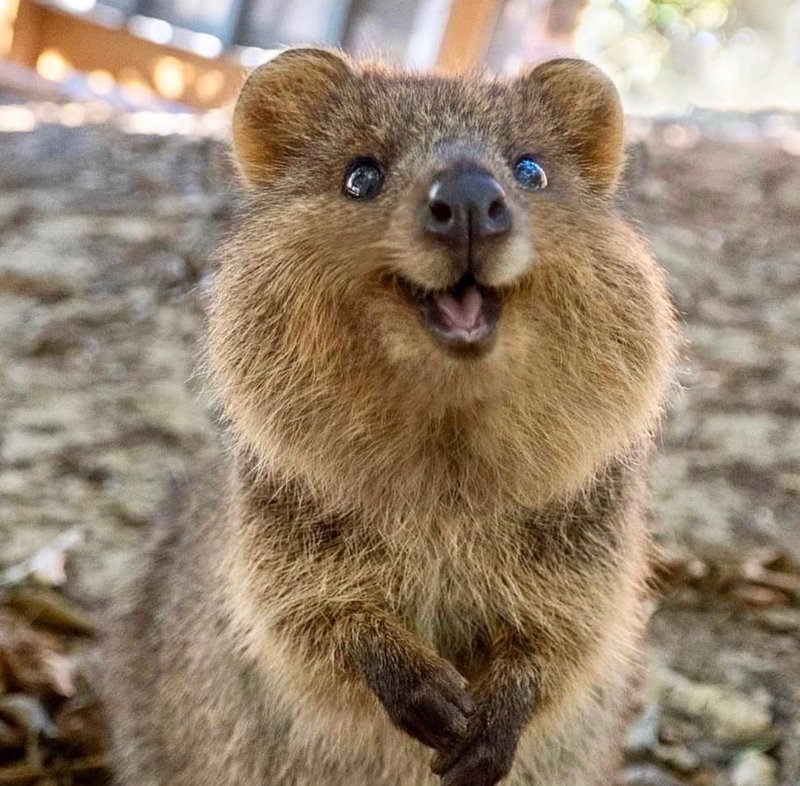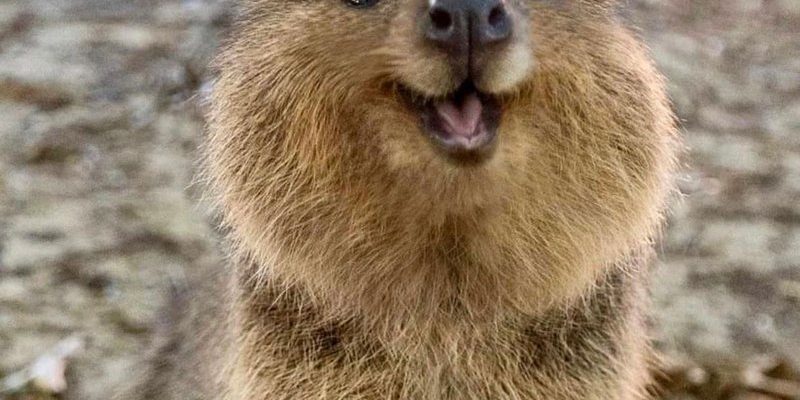
Quokkas are small, herbivorous marsupials found mainly on Rottnest Island and parts of the Australian mainland. While they may not be able to perform complex tasks like some other animals, they do show evidence of problem-solving skills and social behaviors that reveal a lot about their cognitive capabilities. So, how smart are these furry friends, and what makes them stand out among Australia’s wildlife? Let’s explore their cognitive abilities and what we can learn from their behaviors.
Understanding Quokka Intelligence
Quokka intelligence can be a fascinating topic, especially since it challenges our perceptions of animal smarts. Like many animals, they navigate their world primarily through instinct, but they also exhibit learned behaviors. For example, quokkas can remember the locations of food sources and avoid areas that pose danger. This means they aren’t just following their noses—they’re using a bit of cognitive thinking along the way.
One interesting fact is how quokkas adapt to their environment. When a threat looms, they have the capacity to learn from that experience. If a quokka encounters a predator, it can recall that area and be more cautious next time. This ability to learn from experiences is a hallmark of intelligence in the animal kingdom, indicating that quokkas are more clever than they appear.
Moreover, their social structure plays a role in their intelligence. Quokkas often live in groups, which can lead to interactions that promote learning from one another. Think of a small community where individuals share knowledge about food sources or warn each other of danger—a real testament to their social intelligence.
Social Behavior of Quokkas
Quokkas are known for their social nature, often found in groups called “mobs.” Within these mobs, quokkas engage in various social behaviors that hint at their cognitive abilities. They groom each other, share space, and communicate through body language. This social interaction isn’t just about being adorable; it’s a way for them to bond and collaborate within their group.
Interestingly, quokkas have a unique way of expressing themselves. They use a series of sounds and physical gestures to communicate. For example, if one quokka spots food, it might make a soft chirping sound to alert others. This behavior shows a level of social awareness that goes beyond mere instincts.
Not only do these social interactions create a supportive environment, but they also encourage learning. Younger quokkas may watch their elders and learn important survival skills. You can imagine a young quokka observing how older members of the mob find food or evade predators. This kind of teaching moment is a hallmark of intelligent species.
Problem-Solving Skills
You might be wondering how quokkas approach challenges in their environment. Surprisingly, they possess some noteworthy problem-solving skills. When faced with an obstacle, such as a fence or an unfamiliar area, quokkas demonstrate a knack for figuring out how to navigate those situations.
For instance, if a quokka encounters a barrier that blocks its path to food, it doesn’t just give up and walk away. Instead, it might explore different angles or find a way around. This level of curiosity coupled with persistence indicates a basic understanding of cause and effect, which is crucial in the animal kingdom.
Moreover, researchers have observed that quokkas can adapt their behaviors based on past experiences. If they remember that a specific route led them to food last week, they’re more likely to try the same path again. This is a fantastic example of learning from past experiences—a fundamental aspect of intelligence.
Life Skills and Survival Tactics
Survival in the wild involves more than just finding food; it requires a set of life skills that quokkas seem to have mastered. For instance, quokkas are adept at foraging, meaning they know how to find the best plants to eat and can identify safe versus toxic vegetation. This knowledge is critical for their survival in the wild.
Additionally, quokkas have excellent memory skills. They can remember the layout of their environment, which helps them navigate their territory effectively. When searching for food or other quokkas, having a mental map is a significant advantage. Picture a quokka confidently hopping through its territory, knowing exactly where to find the juiciest leaves or where other members of its group are located.
In terms of avoiding predators, quokkas also display clever tactics. They often freeze or dash for cover when they sense danger. This instinctual response is combined with learned behaviors from prior encounters with threats, showcasing their ability to adapt and survive.
Quokkas and Human Interaction
Quokkas have a fascinating relationship with humans, which adds another layer to their intelligence. Tourists flock to Rottnest Island, eager to snap selfies with these friendly creatures. Interestingly, quokkas seem to recognize humans and have adapted to the presence of visitors. They often approach people for food, showcasing their ability to associate humans with a potential food source.
However, this relationship also raises concerns about their well-being. While they may seem eager for attention, it’s essential for visitors to respect their space and not feed them human food. Quokkas have specific dietary needs that can be jeopardized by inappropriate feeding, showing that even their interactions with humans require a level of understanding and respect for their health.
Furthermore, their willingness to engage with people highlights their social nature. Quokkas often display curiosity, approaching humans without fear. This ability to interact with us could suggest a level of adaptability that’s quite impressive for a wild animal.
Conservation and Future Challenges
As delightful as quokkas are, they face challenges that threaten their populations. Habitat loss, invasive species, and environmental changes put pressure on these adorable animals. Understanding their cognitive abilities can help in conservation efforts, as it highlights their need for a suitable environment to thrive.
Efforts are underway to protect quokka populations, especially on Rottnest Island. By preserving their natural habitat, we ensure they have the resources to forage, socialize, and live in a way that supports their innate intelligence. It’s crucial for conservationists and researchers to study their behaviors and cognitive abilities, as this information can guide effective strategies for their protection.
Ultimately, as we learn more about quokkas and their intelligence, we can appreciate them not just as cute animals but as creatures with unique cognitive traits. Protecting them goes hand-in-hand with understanding how they think and interact with their world.
Final Thoughts on Quokka Intelligence
Quokkas may be small, but they offer a fascinating glimpse into the world of animal intelligence. From their social behaviors and problem-solving skills to their adaptability when facing challenges, these little marsupials surprise us with their cognitive capabilities. Their ability to learn from experiences and interact with humans adds to their charm, making them worthy of our admiration and protection.
So next time you see a quokka smiling for the camera, remember there’s more going on behind that adorable face. These creatures are not just cute; they embody a unique blend of intelligence and social awareness that enriches the ecosystems they inhabit. By supporting conservation efforts and respecting their natural behaviors, we can help ensure that quokkas continue to thrive in their habitats for generations to come.

